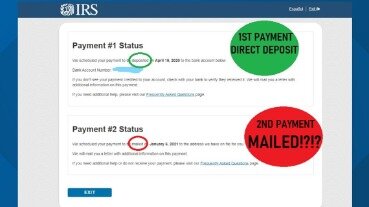
Of course, e-filing wouldn’t instantly turn everyone’s taxes into a snap. Some studies have suggested the system could work for somewhere around 40 percent of taxpayers, saving them time and money. But there are probably enough Americans who simply input some W-2s and take a standard deduction without adding on any complicated breaks to make the system worth it. Meanwhile, small businesses might also have to spend extra money getting payroll information to the IRS on a tighter schedule so the government could pre-populate everybody’s paperwork. Countries that already have automatic filing, such as Denmark, Sweden, and Spain, have much simpler tax codes, they note. The reasonable argument against e-filing is that such a system wouldn’t be ideal for Americans with complicated taxes. As some advocates have written, it’s “ scrivener’s work.” It would simply be transcribing the data it otherwise might use to audit you. And most importantly, the IRS already receives all of this information.
Irs turbotax free file free#
Nor, as ProPublica notes, is anybody suggesting that we eliminate free tax prep services for low-income Americans. If someone looked at their refund and thought it was bizarrely small, they could go ahead and file their taxes as normal.

First, nobody is suggesting that taxpayers be forced to accept the IRS’s calculations. Moreover, they say, the poor would be most likely to be victimized, since they have the fewest resources to challenge a bum return. The unreasonable argument is that the IRS can’t be trusted to fairly fill out most Americans’ tax forms while also enforcing compliance. As you might be able to guess from the underhanded tactics, this seems to be an example of the latter. There’s a reasonable argument against easy tax filing and an unreasonable argument. The IRS also added protections that not only prevented attempts at hiding free filing, but gave the IRS the power to create its own free-file option.“We may have to retract so far based on my research,” Smith said. The move comes just a year after the New York State Department of Financial Services found that Intuit and four other tax prep providers (including H&R Block) had conducted "unfair and abusive" practices by hiding the landing pages for their free filing pages in an alleged attempt to artificially drive paid filing. The company maintained that it was still "committed" to free tax filing, but that almost 90 percent of filings from the past eight years came from outside of the Free File program. While the firm didn't elaborate on what those plans were, it argued that it could help taxpayers get refunds sooner at no charge while drawing on experts and letting users rely on their own data. The company said it was "proud" of its involvement, but claimed the limits of the program and "conflicting demands" from outside the program left it with little choice but to leave.Īn exit would let Intuit concentrate on "further innovating" in ways the IRS Free File program didn't allow, the company said. The Hill reports that Intuit is leaving the IRS' Free File program after participating for almost 20 years.


TurboTax creator Intuit has had a chilly relationship with the IRS, and now it's cutting some of its involvement.


 0 kommentar(er)
0 kommentar(er)
